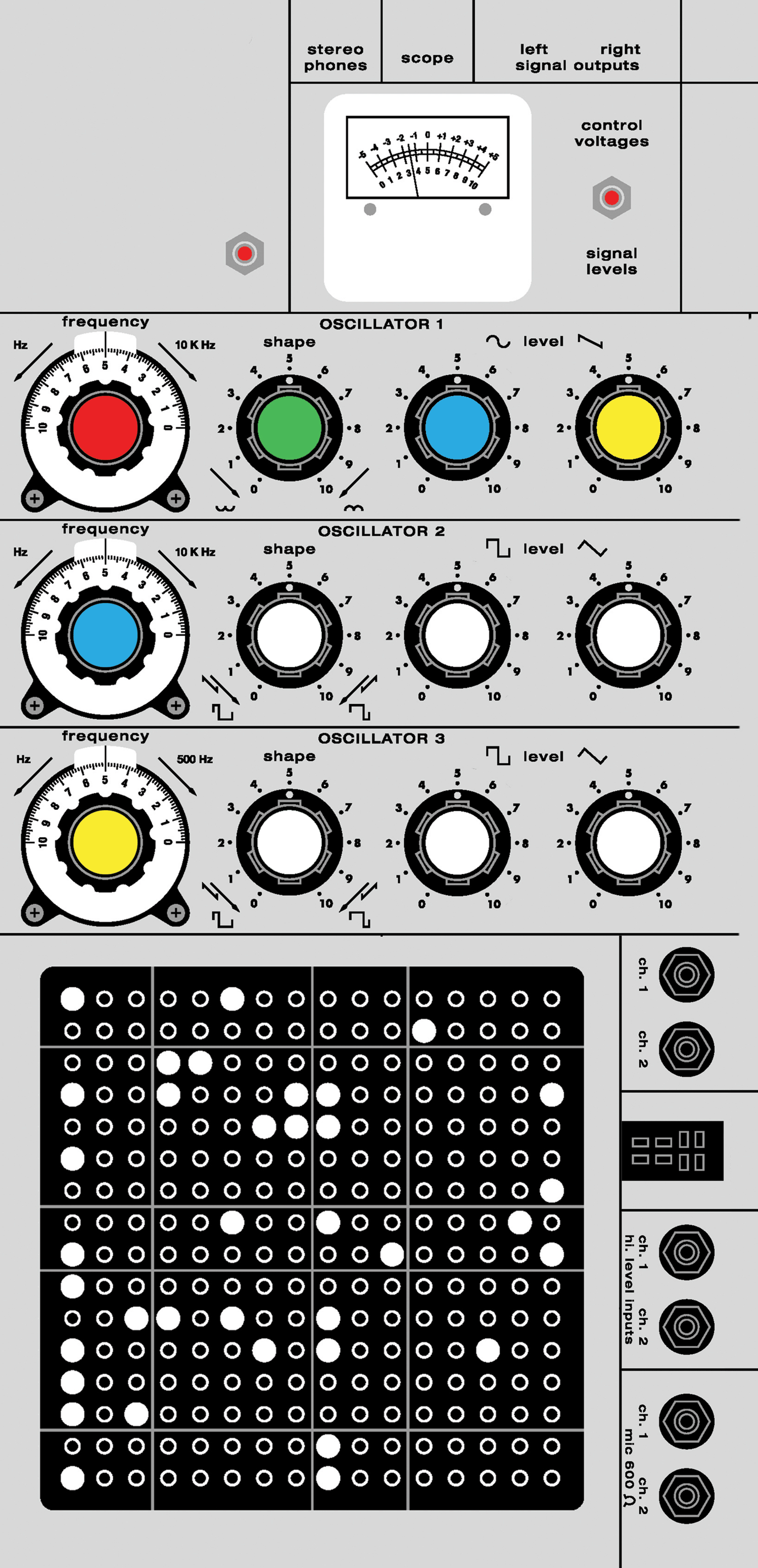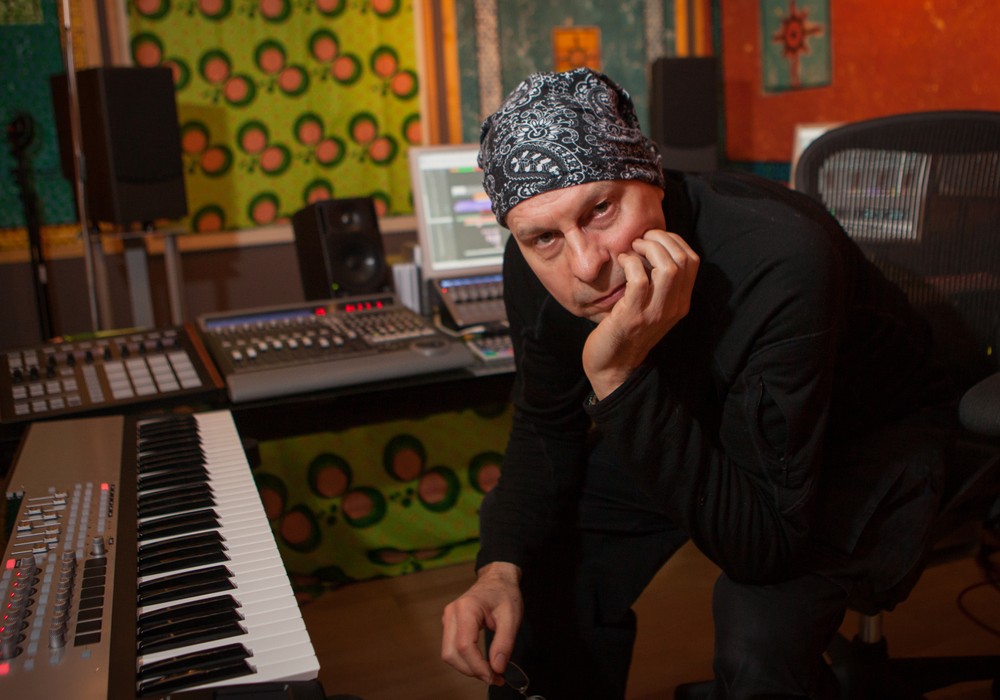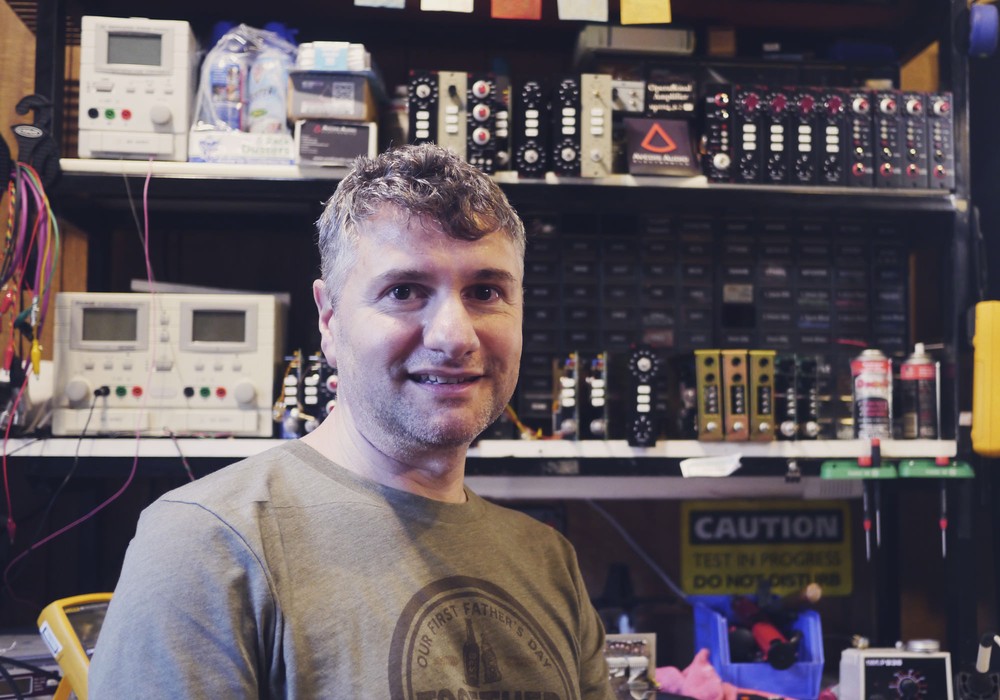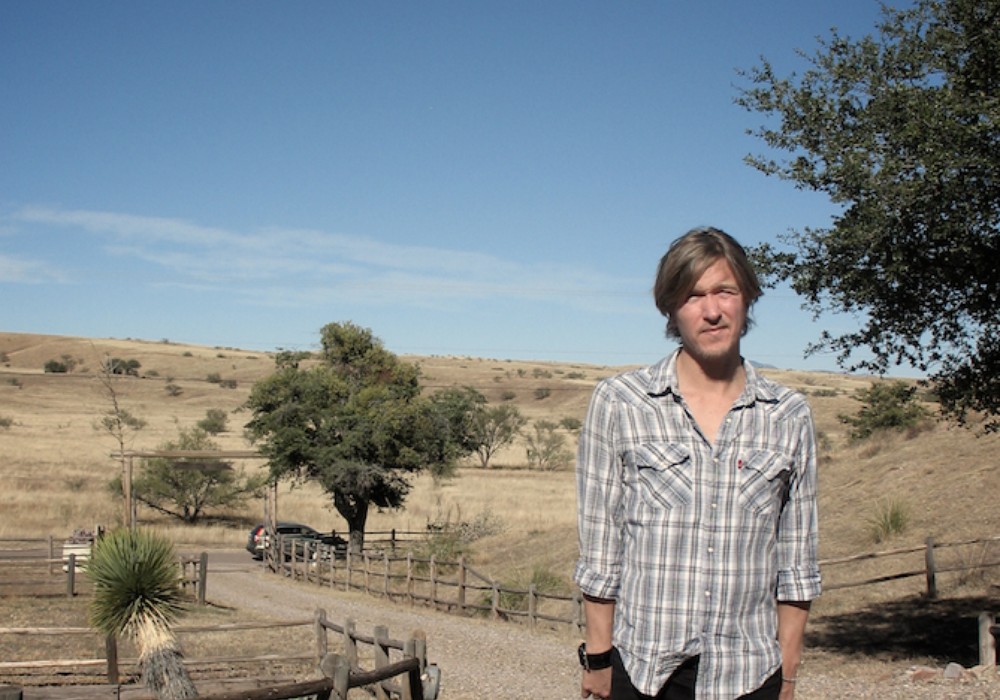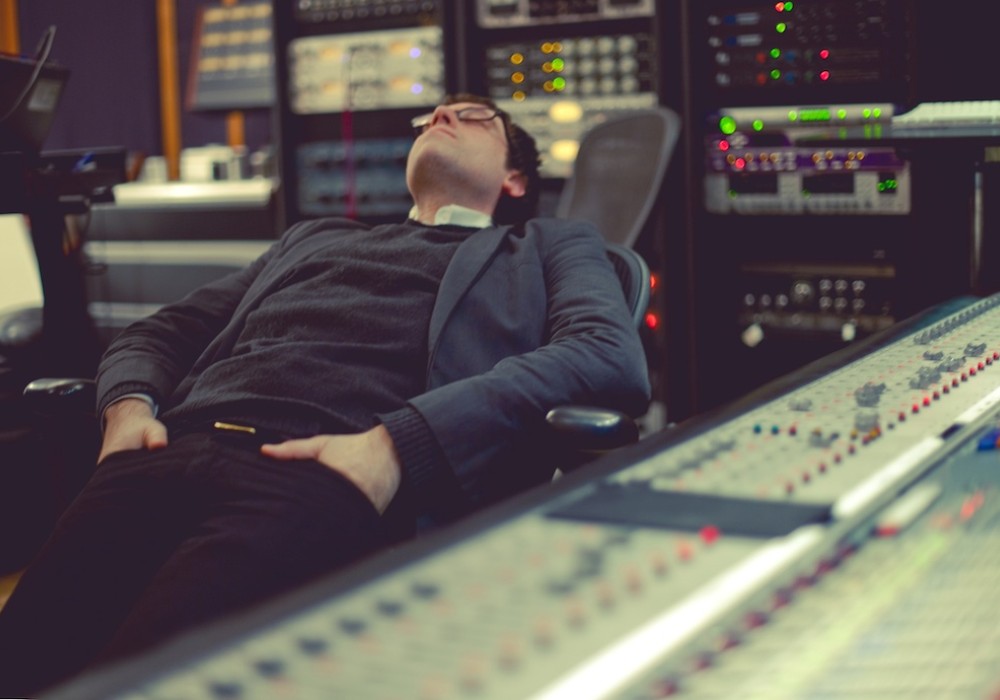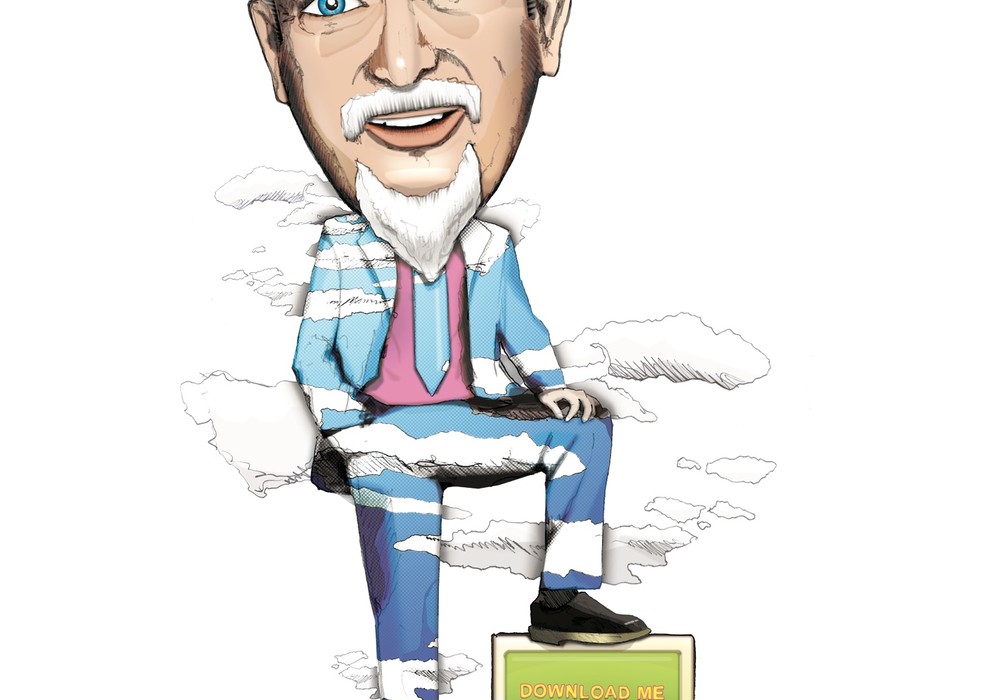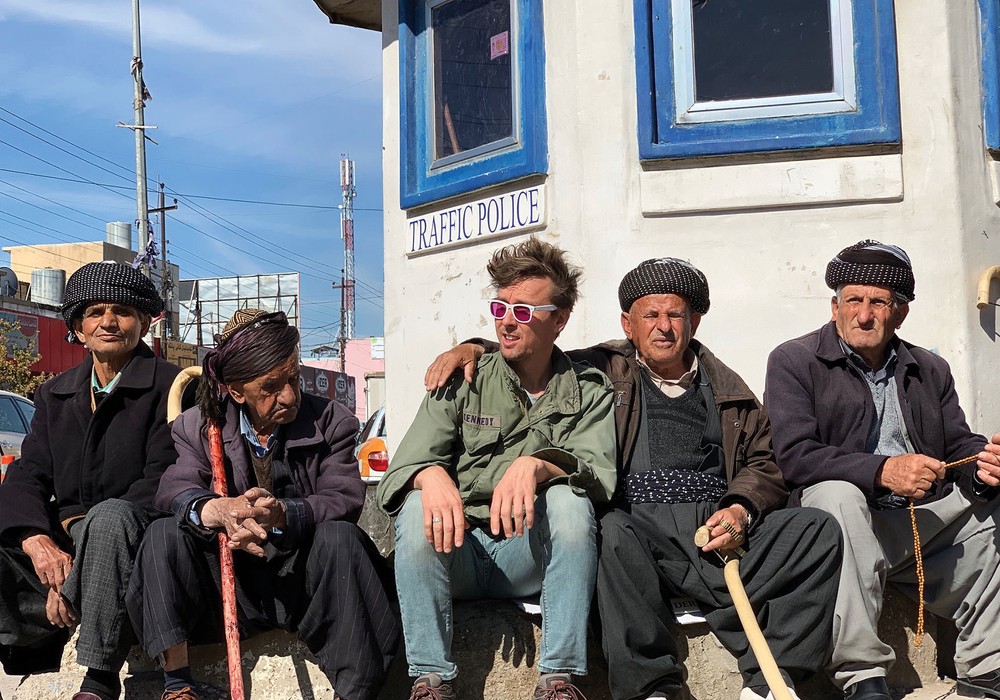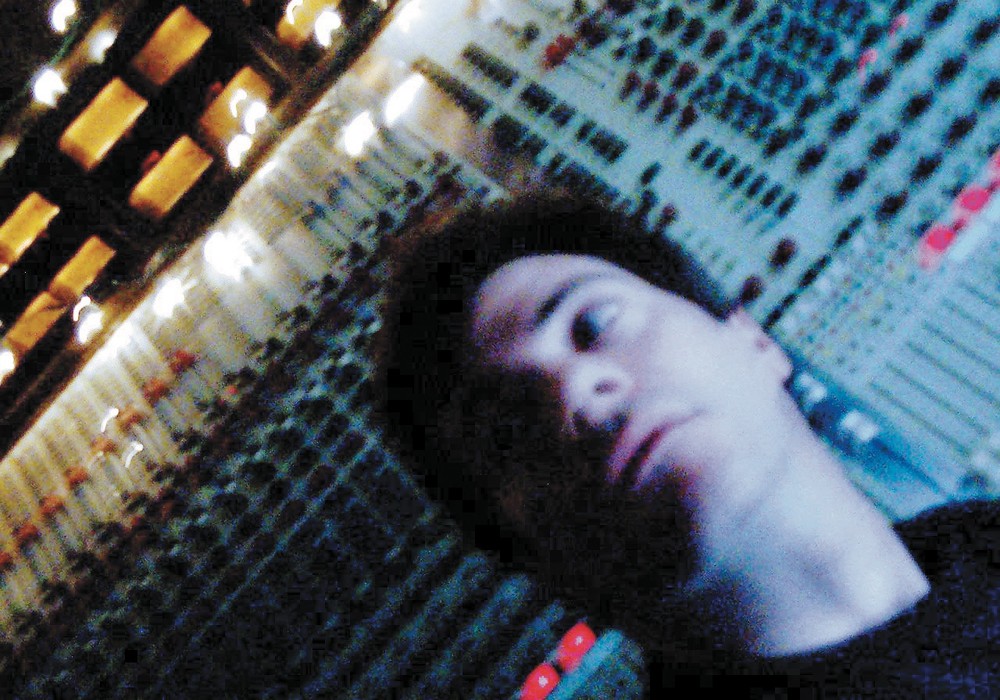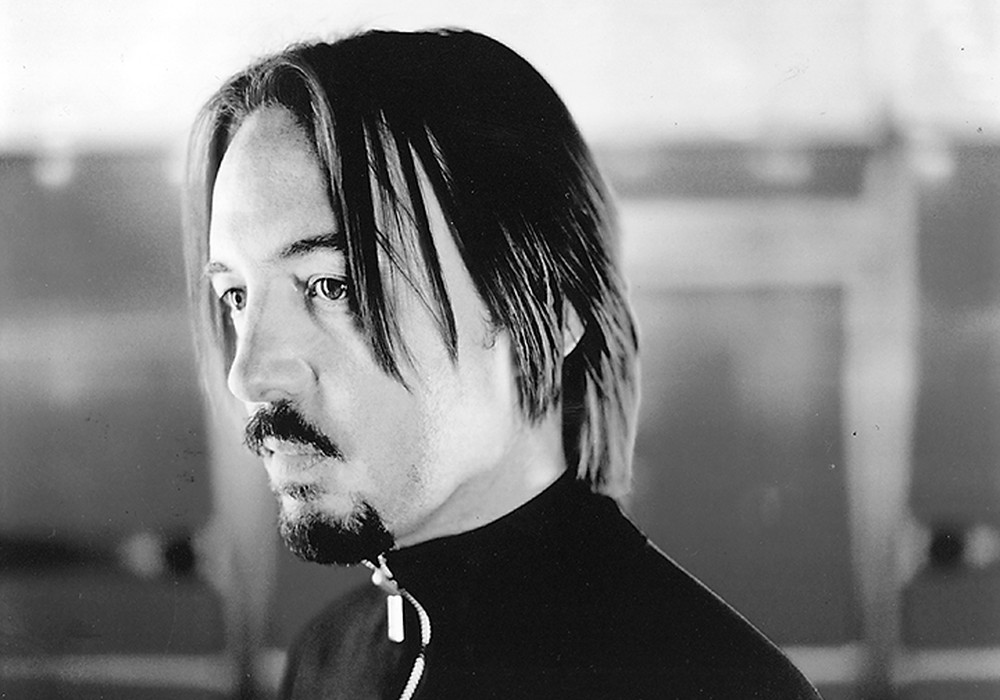I've seen Gareth Jones' name on records since the '80s and have always wanted to meet him. My imagination created a stuffy, meticulous character; an engineer/producer driven by a need for electronic perfection and a slave to the technology of recording. This is the man who engineered albums by Depeche Mode, Erasure, John Foxx, Einstürzende Neubauten, Nitzer Ebb, and Wire, and made them propulsive, fresh, and new sounding. Little did I expect to meet up with an incredibly passionate, thoughtful, and friendly bike riding gentleman with whom I felt an immediate connection. Gareth has kept busy over the years, working with groups like Interpol and Grizzly Bear, and current work that even includes a New Order remix. We met at his studio, Strongroom, in London's Shoreditch neighborhood, not far from where his career initially took off at The Garden Studio with John Foxx, where we had a wonderful chat and a lovely lunch at the Strongroom Bar.
Technology can end up becoming something where you're just learning how something works instead of getting something done.
I had that in the previous incarnation of this room. It was very different. The only technology I have from that period is a few microphones that I've kept. Otherwise everything's different. In those days, I had a Mackie 32x8 console, loads of racked outboard and synths, because it was the '90s. I set it up by default in a way. I moved back here from Berlin, and I'd had a lot of equipment that I amassed. That's what I spent my money on. It was all installed in a studio in Berlin where I was working a lot, this wonderful studio called Tritonus. It's still running. I had a great relationship with the guys there. All my gear was racked up in their room, because I was one of the big clients there. When I wasn't there, they were welcome to use it. I trusted them all. I came back with a load of equipment, and I needed to buy more to make it work as a studio. I did, and I set this up with some rented 24-track tape machine that used to come in when I needed it, a big patchbay, cables everywhere, everything wired up. For me, obviously there are many great guys who run studios like that and do it great, but for me I realized after I shut the room down the first time, I was spending so much time and effort keeping all the gear running that I wasn't spending enough time either doing my own music or using it to actually have other peoples' music come out of the room. It really weighed on me. It got out of control in some way. Maintenance costs were high because I had so much equipment. I wanted to be professional, so every item of equipment I had, I wanted it to work. It's great when it all works. No one minds one thing being fixed. But it kind of took over. It was quite positive that when rent here became higher and I thought it was now unaffordable for me, I rethought everything and sold a lot of equipment. That had plusses and minuses, because I sold some equipment that I never should have sold, but we've all been there.
Oh yeah. It's hard. Some things will end up being deemed worthless because technology moved forward, and other things will be worth more.
You look back and think about that. It's really easy to be clever with hindsight. It's really easy.
I try to be so careful selling stuff still, but sometimes you're running out of money and you get rid of something.
You think well, I've not used it for so long. It also depends if you've got space. If your studio has space and is set up as a working studio, that's fine. I went through sort of a reboot, which meant that I went to mixing in the box. It was another example of early adopting, because I thought, "Okay, my future doesn't involve so much of this outboard." Computers are getting really powerful. I can already mix simpler records in my laptop and do as good a job as I was able to do in an expensive studio. I could feel that budgets were already constraining. Obviously many years later now, I'm talking 15 years later, it's really doable. Many of our great genius colleagues are doing incredible work in the box completely.
If someone's good, the work is good.
That's what it's about. It's about aesthetics now.
Nowadays, clients don't even ask anymore if I have Pro Tools. They just come in and go, "Oh, you've got tape decks too!"
No one cares. People just show up. It used to be important. That would be a big thing. "How many channels does the console have? Does it have 48-track?" That was the big one in my later analog work. At times that became essential.
You mixed Interpol's first record, Turn on the Bright Lights, that Peter Katis [Tape Op #31] recorded. Where did you mix that at?
Peter's place in Connecticut.
He's fantastic.
Oh sure, he's fantastic. He's done loads of great work. His house was amazing, so supportive of musicians. He was obviously working a lot, but not the huge legend he is now. He hadn't broken through. He's got this massive house. The studio is in the loft, the roof, but all downstairs was like funky, but set up... there were loads of rooms for musicians. The vibe was that bands turned up, they went to the store, bought loads of food, big kitchen, people would cook, they'd hang out, and they'd make the record. He's a drummer and has a band background too.
The Philistines Jr.
He really got it. He could see what musicians needed. He built a wonderful place. The studio was in the roof. Daniel Kessler, the guitarist, was at that time running a Domino Records office out of America out of his apartment. It was basically a phone and a fax machine in the corner of his apartment. Lawrence [Bell, at Domino] had heard the stuff and knew they were looking for someone to help mix it. I thought they were an amazing band. I just loved what I heard. We were very time limited, and Peter finished up mixing some of the tracks on that album again with the band after I'd gone. I'd mixed everything, but not every mix made the cut. Had I been in America, I would have been involved, of course. He tracked to 24-track tape. That was a joy as well. I just mixed everything off of tape. I think at that stage already Peter had developed a powerful mix method, which was to play the tape into the computer and use Pro Tools and the automation to just sculpt it exactly as he wanted it. I wasn't into that, partly because I'm not that proficient with Pro Tools (I'm a Logic and Ableton guy), and also partly because it was on tape, and he had an analog console. I was like, "Man, let's just mix it off tape. It's so amazing, so great!" So we did that. What a lucky privilege to work with a great band on such a great debut album, at that stage of their career when they're really fresh and hungry, making a new sound. Amazing.
That record is just so good.
It's amazing. I agree. I was so pleased to be a part of it. It's a really great spirit. It's always wonderful when the band's first album is something very special. It's like a first love. It's something you and I are still involved with because we love working with young bands. I had the great pleasure a few years ago working with this wonderful art rock band in this country called These New Puritans. I worked on their first album, and it was a really, really special atmosphere. We've got this toolkit that we can apply. Obviously some young bands and musicians don't want to work with granddad, because they want to work with their contemporaries. All respect to them. I did a lot of work with my contemporaries, and I still do. I did when I was younger as well. Some young bands love our CVs, they look at what we've done, and they think, "Oh, that guy must be pretty cool, because he did all these records". Then you connect. That's fantastic I think. But we've got a tool kit, that's what I'm trying to say. If the band is on to that, we can bring a tool kit, because some of these issues we've seen before.
I've always got something in my pocket to pull out.
Exactly. We've got experience where we're able to suggest that too much pot and alcohol before lunch might not be the best way of getting the backing tracks done as we want, or whatever it might be. We've got a whole tool kit available. That was a big one for me. You say pulling that thing out of your back pocket. When I was a young engineer, when I made something and the artist didn't like it, that was a bit of a challenge for me, because I was still a bit ego-bound. I thought, "Oh, they don't like it?" But now, of course, it goes in the back pocket. It didn't work for them, but that was cool. I can maybe apply that process or idea somewhere else.
Absolutely. Always.
A big part of my job, my personal growth, has been letting go of the ego.
I remember every argument ever and how we solved it. It's so important to me.
Yeah, of course. It's so wonderful isn't it, as a producer or an engineer, when there's a clear opinion from the artist? That's the best you can possibly have. I'm talking to a young electronic band called RAME in Hackney down the road about mixing their new album. We've just tentatively restarted. I always like to do a track first. It's something I learned. I won't do spec mixes, because I'm too old, and my CV is too long. On the other hand, if you ask me to mix a record for you, I'd insist that I did a first mix to see if we were all on the same page. It's essentially a spec mix, but I ain't calling it a spec mix.
You're saying that this is with the intention that we're moving forward. You're not battling it out with other people.
Well, I might be. I don't know, but it's great. It's something I learned from one of my colleagues here at Strongroom, Haydn Bendall. He pointed out a couple of years ago to me that he always does one mix first, because you find out really quickly if it's going to work, which is way better for the band, and way better for us. It's like a date before you get married. It might be good to have a date before you get married. I did a couple of things on this mix for RAME, this first mix that we're working on together, without the guys here. I didn't think they were going to like it. They were quite a bit concerned when they came back to critique the mix and make some changes. They were concerned that I might be offended if they didn't like things. I really had to lay it down. "No, no, not at all." We've got to have the creative freedom to say, "Look, I've tried this. It's no big deal. I didn't spend a week on it." It's a possibility. "Does it work for you?" If it works, great. If it doesn't, you just move on.
You've got to let it go. What drew you towards using [Apple's] Logic Pro?
I was a big Studio Vision user. They went out of business. Then I had a long relationship with Cubase. I was an Emagic Creator and Notator user on the Atari way back. I knew the Emagic company [later purchased by Apple] when I lived in Germany. I knew Gerhard Lengeling, who was the CEO and one of the visionaries behind the company. I came back to Logic '90s. At that time, it fixed a few problems in my life. MIDI machine control of ADATs worked seamlessly with Logic. I kind of moved back towards it and at some point I just decided to stick with it and stayed. I was very involved in the Digidesign hardware at the beginning, with Opcode and Studio Vision, because they made the actual stuff, but then when they went to TDM, all the old stuff they had made became obsolete. I'd spent all this money on hardware that all became obsolete, and I kind of lost the vibe. It was only later in life that I learned the thing about digital is that it has a limited shelf life. I was a young guy and had spent all this money on Digidesign hardware, and now none of it's supported any longer? I didn't like that. I stuck with Logic. Then they went to Apple, and that continued to work.
Are you on the newest version of Logic right now?
Yeah.
Has it felt like it's getting dumbed down a little bit to you?
No. There was a bit of an argument about that. Everyone was very nervous when Logic X came out. Like, "Oh, is it going to be GarageBand?" There's no taking away of features. They've added features. To me, massively great features have been added. Having not gone the TDM route back in the day, I was getting an amazing amount of CPU out of Logic, working native. I think the latest version of Pro Tools, 12, is very CPU efficient again, but I was able to run so much more processing in Logic on the same computer than I could in Pro Tools. At one stage in my life, it would have been impossible, with the technology that I used, to run the sessions on Pro Tools native. It was impossible. Whereas I could run these 200-track sessions on Logic easily. I think that's probably very balanced out now. So now I'm in Logic, and I really enjoy mucking around with Ableton Live. The great thing using something like Cubase, Logic, or Digital Performer is that I could mix and match audio interfaces easily. As I developed, I was able to upgrade my audio interfaces freely. I love this Metric Halo stuff now. No one cares what kind of pen checks are wrote with. Obviously everyone can do great work with everything. Hans Zimmer is a huge Cubase user, and he's clearly a great master of the film soundtrack.
It works.
I feel so comfortable and proficient with it. I can't be like too bossy, like some of the great mixers are. I believe Chris Lord-Alge says, "Pro Tools sessions but no playlists or alternative takes." Because I'm in Logic, for a lot of the work that I get the clients have to bounce out the files. I get raw files, everything's totally clean, and there's nothing glitchy in the project. There are slight little advantages for me. It forces a lot of my clients to think about what they're giving me. It forces a completion on the recording end, which I enjoy. I know a lot of great producers complete anyway when they send their mixes, but if you're working for a young band who perhaps haven't quite hit their stride, it's quite good. You say, "Look, all you need to do is export all the wav files, and I'll build a session and mix it." That means that they tidy up and commit to a take. That's worked really nicely.
One of the cooler creative things I think we get with the digital age of recording. It's that sort of thing, being able to record effects in and have them there to try, to use or not.
That's a big breakthrough. There was a period in the MIDI recording world in the mid-'90s I'm guessing where we tried to recall all the external MIDI synths. They could store the patches, and there were these programs like SoundDiver that managed the libraries. Pretty soon we all passed through that. Now if it sounds good, you print it. Then you've got it and recorded it. If it sounds great, we just record it, and then we've got it. That's wonderful. It's really wonderful. I suppose I use that, lots of us do, when we're mixing as well. If I'm in another room outside somewhere obviously if it's a special effect, we've made it, it's got to be tracked. We might leave the room. That might not be the ultimate mix. It might get finished off somewhere else.
It might be the only thing you keep from that room. You never know!
Yeah, you never know.
